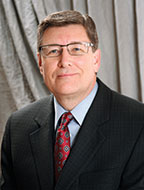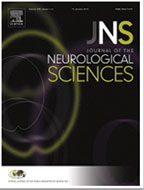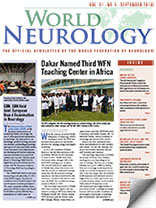By John D. England, MD

John D. England, MD
As with any journal, changes in the editorial staff are necessary from time to time. Two of our associate editors, Nicolas Bazan, MD, PhD, and Bruce Ovbiagele, MD, MSc, have stepped down. Both of them did an outstanding job in ensuring the continuing success of our journal. Dr. Bazan will continue as an Editorial Board member, and he will continue his role as the director of the Neuroscience Center at Louisiana State University Health Sciences Center (LSUHSC) School of Medicine in New Orleans. He will remain as an indispensable resource for basic neuroscience. Dr. Ovbiagele is now the editor-in-chief of our sister publication, eNeurologicalSci (eNS), and is the new chair of the Program Committee for the International Stroke Conference. He also continues to serve as chair of the department of neurology at the Medical University of South Carolina.
I am delighted to welcome two outstanding individuals as our new associate editors. I am confident that both of them will do an outstanding job to improve our journal and enhance the review process.
 Hamilton Farris, PhD, is the new associate editor for basic science. He is associate professor of neuroscience, cell biology and anatomy, and otolaryngology at the LSUHSC School of Medicine in New Orleans, Louisiana. He has over 24 years of experience in the fields of neuroscience, bioacoustics, and animal behavior. He has active research projects examining the evolution, ecology, and neurophysiology of sensory processing. He is the director of the medical neuroscience course, the co-director of the neuroscience PhD program, and assistant dean of student affairs for the LSUHSC School of Medicine.
Hamilton Farris, PhD, is the new associate editor for basic science. He is associate professor of neuroscience, cell biology and anatomy, and otolaryngology at the LSUHSC School of Medicine in New Orleans, Louisiana. He has over 24 years of experience in the fields of neuroscience, bioacoustics, and animal behavior. He has active research projects examining the evolution, ecology, and neurophysiology of sensory processing. He is the director of the medical neuroscience course, the co-director of the neuroscience PhD program, and assistant dean of student affairs for the LSUHSC School of Medicine.
Salvador Cruz-Flores, MD, is the new associate editor for outcomes research and cerebrovascular disease. He is professor and chair of neurology at Texas Tech University in El Paso. He is an internationally renowned expert in cerebrovascular disease and critical care neurology. He also holds a degree in public health (epidemiology). He has been a leader on several guidelines on cerebrovascular disease and is chair of the LATAM initiative, which was launched under the auspices of the World Stroke Organization and the American Stroke Association. He helped organize the Declaration of Santiago (La Carta de Santiago), which comprises several Latin American stroke societies.
In our ongoing attempt to inform readers of important and interesting new developments in the journal, the editorial staff has selected two new free-access articles. Both of these deal with potential adverse effects of using recreational marijuana. Marijuana is the most frequently used illicit drug, and many individuals believe that it has few adverse effects. In the United States, 25 states and the District of Columbia have laws legalizing marijuana in some form, and four states and the District of Columbia have legalized marijuana for recreational use. Most likely, this trend for legalization will spread. Such initiatives have contributed to the belief of many individuals that marijuana is a safe recreational medication. As such, all of us need to be reminded that there are potential serious adverse outcomes associated with marijuana use.
1) Kavelin Rumalla, Adithi Reddy, and Manoj Mittal investigated the relationship between marijuana use and hospitalization for acute ischemic stroke (AIS) by performing a retrospective cohort analysis of the U.S. Nationwide Inpatient Sample (NIS) from 2004 to 2011. The incidence of AIS hospitalization in marijuana users and non-marijuana users was compared. After adjustment for other confounders, they found that marijuana use was independently associated with a 17 percent increased likelihood of hospitalization for AIS. Not surprisingly, the likelihood of AIS hospitalization increased when marijuana use was combined with tobacco (31 percent) or cocaine (42 percent). The authors bring up the question of whether all patients with AIS should be queried regarding marijuana use.Recreational Marijuana Use and Acute Ischemic Stroke: A Population-Based Analysis of Hospitalized Patients in the United States, J. Neurol. Sci. 364 (2016) 191-196. http://www.jns-journal.com/article/S0022-510X(16)30066-1/fulltext.
2) David Rose from the University of South Florida provides an editorial, which summarizes the above article and provides a more general perspective on recreational marijuana use and its potential adverse effects. He also adds enlightening commentary on the potential adverse effects of synthetic marijuana (eg, “Spice” or “K2”), which may be more dangerous than regular recreational marijuana.
What a Downer: The Dark Side of Cannabis, J. Neurol. Sci. 364 (2016) 189-190. http://www.jns-journal.com/article/S0022-510X(16)30147-2/fulltext.
